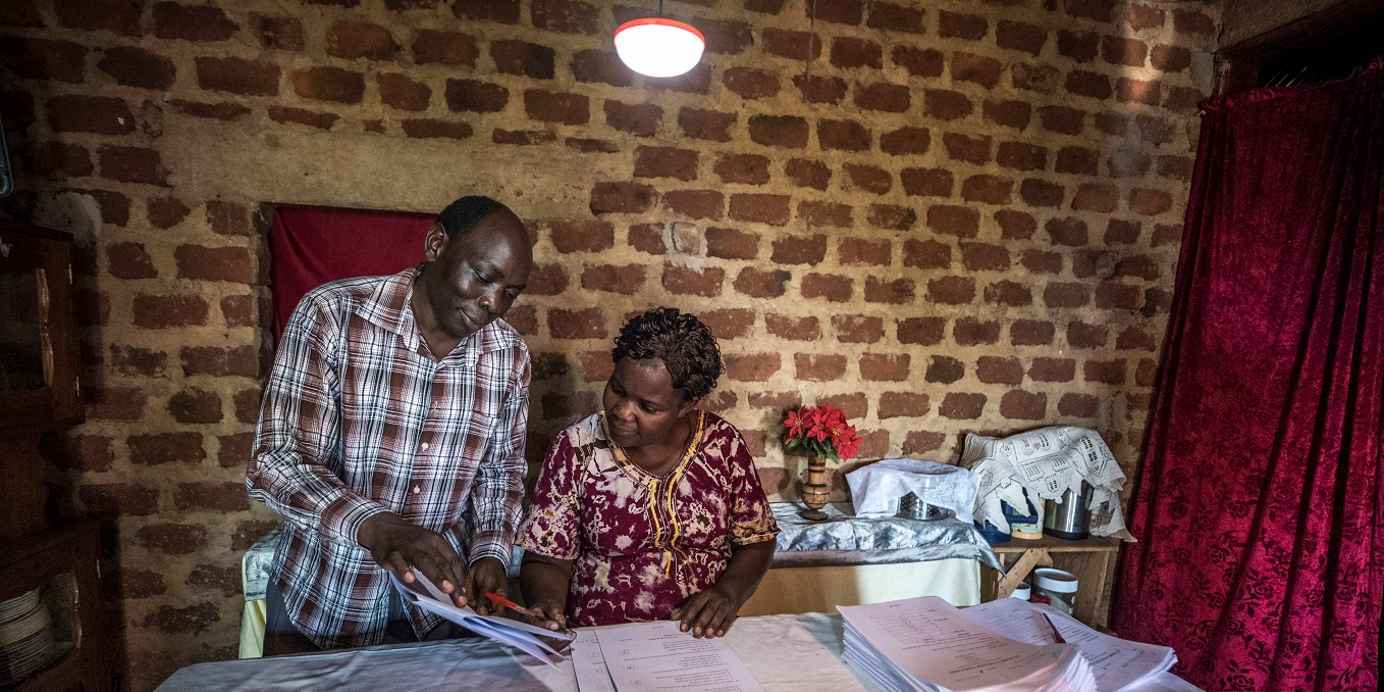Founded in 1994 by Triodos Bank and Hivos, Hivos-Triodos Fonds has been at the forefront of investing in early-stage companies in developing countries and emerging markets for more than 25 years. It has invested over EUR 250 million, predominantly helping women in rural areas access financial services.
Green and inclusive
Fund Manager Karel Nierop tells us about the fund’s evolution. “Whereas Hivos-Triodos Fonds’ initial focus was on financing microfinance institutions, in 2015 it started to expand its investments into sustainable food and agriculture and renewable energy solutions for low-income households. This was either by investing in successful companies directly, or though financial intermediaries in Asia, Africa and Latin America.”
For its 2021-2025 strategy, Hivos-Triodos Fonds will intensify this focus on financing green and inclusive micro, small and medium-sized enterprises (MSMEs) in agriculture and energy. Financial instruments vary from debt to equity and are tailored to the needs of the MSMEs.
Hivos Executive Director Edwin Huizing explains the unique fit between the two organizations. “The fund’s ‘Green New Deal’ perfectly complements Hivos’ renewed strategic direction, which includes Climate Justice as one of its three impact areas. Achieving Climate Justice not only requires strengthening civil society, it also calls for climate finance to support citizens and communities most affected by the climate crisis in a timely and fair way. Hivos-Triodos Fonds works to redirect financial flows to rebuild regenerative societies. So together, we can address the impact of the climate crisis, reduce inequality and stimulate socio-economic development amongst marginalized groups such as women, indigenous peoples, youth, urban poor, and smallholder farmers.”

AlphaJiri - Amped Innovation

SunCulture

SolOrganic
Challenges and financing gaps
There has been progress in access to finance, to clean, affordable and reliable energy, and to food security and nutrition. But significant financing gaps persist. We still need substantial efforts and investment flows to achieve the Sustainable Development Goals, while at the same time ensuring the restoration and preservation of the environment, its biodiversity and the planet’s natural resources.
Karel Nierop points out that climate change and the COVID-19 pandemic have made the need for balanced ecosystems and inclusive prosperity even more urgent. “Hivos-Triodos Fund addresses these very challenges and gaps,” he says, “And by proving that investments in this space can be successful, it also changes the attitudes of investees, investors and the broader public.”
Successful blended finance
Huizing looks back on the early days of the fund. “When Hivos-Triodos Fonds was set up, cooperation between a development organization and a bank was frowned upon, to put it mildly. But our partnership soon became recognized for how it pioneered microfinance by making small loans available to entrepreneurs in disadvantaged markets. The microfinance sector as we know it didn’t exist yet. Over the years, the sector has attracted an enormous amount of private and institutional money, showing what a catalyzing role Hivos-Triodos Fonds really played.”
Although the fund has grown past this structure today, the combination of public and private funding from Hivos and Triodos Bank, respectively, remains a great example of a successful blended finance fund.
“Our ambition is to push for the same development as we did in microfinance,” Huizing explains. “We want to continue to play a pioneering role and scale up the positive impact financing can have in addressing the climate crisis,” adds Nierop, continuing, “Hivos-Triodos Fonds demonstrates that innovative, early-stage business models work, and this can spark investments from other investors.”
Nierop is optimistic about the future: “The fund has a strong balance sheet to leverage on, so we’re looking to attract many new donors and investors to the fund over the coming years.”
Explore the fund’s impact reports to find out more how it contributes to the development of inclusive, sustainable food chains and how it enables access to clean, affordable and reliable energy in developing countries.

